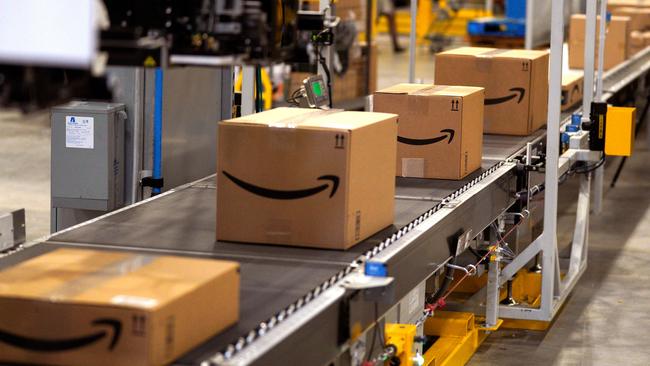Australia’s online retail revolution
With overseas giants entering the game, traditional retail tactics have transformed into a strategic chess match, where the most agile and forward-thinking businesses succeed.

Once criticised for lacking a competitive edge, with major players dominating a small playing field, Australian retail has evolved into a fierce battleground – one where convenience, price and sustainability are the keys to the customers’ hearts. 
Online marketplaces and overseas discount retailers haven’t just altered the playing field; they’ve redrawn the boundaries, creating the most intensely competitive environment our industry has faced.
With overseas giants such as Shein and Temu entering the game, traditional retail tactics have transformed into a strategic chess match, where the most agile and forward-thinking businesses succeed.
Despite the cost-of-living crunch, opportunity remains, with Australian online retail sales increasing by $3.4bn in the previous six months.
High interest rates significantly impact certain demographics – particularly young families – but they don’t affect everyone the same way.
Half of the 18 to 29-year-old Australian population live with their parents, while 34 per cent of Australians own their own homes outright, according to Roy Morgan. These cohorts are still spending, and retailers are competing for their cash.
And for those who are navigating the shockwaves of more than a dozen interest rate increases since mid-2022, the allure of ultra-cheap prices is significant.
Online marketplaces have capitalised on the birth of this two-speed economy, with Amazon, Shein and Temu disrupting retail to the tune of $8bn.
Amazon has carved out its own legacy in Australia in recent years, showing how convenience and value can reshape consumer attitudes. Efficiency, coupled with a broad range of offerings, is an irresistible option for many Australians. The frictionless experience Amazon provides, from browsing to delivery, enhances customer satisfaction and loyalty.
Many Australian retailers have elevated their online offering to compete.
The explosion of ultra-cheap retail platforms like Shein and Temu has injected a new element of price competition into the market.
Their aggressive marketing, social media presence and low prices now entice two million Australian shoppers every month.
And while they’re carving out a niche with cash-strapped shoppers, affluent Aussies are also trying out their platforms.
According to Roy Morgan, 91 per cent of Australian online shoppers are aware of Temu, and 29 per cent of those have made a purchase – already eclipsing some long-established retailers. While competing with global disrupters isn’t a new challenge for local retailers, the speed with which Shein and Temu have established a foothold in the Australian retail market is extraordinary.
Whether this trajectory or shift continues remains to be seen.

The ethical credentials of these ultra-cheap retail platforms will be a vital testing ground, with both facing questions in this area.
As Australians embrace ultra-cheap, ultra-fast retail, a counter-trend is gaining significant momentum – the circular economy.
About 34 per cent of Australians are participating in the circular economy, with 57 per cent buying second-hand items and 44 per cent selling items they no longer need, according to Roy Morgan.
Of these Australians, 29 per cent do so because it is more sustainable, while 67 per cent do it to get higher quality items at cheaper prices.
Are these trends of ultra-cheap retail and the circular economy on a crash course? Or can they co-exist? What we do know is it provides an opportunity for local retailers to learn from the disrupter’s playbook.
There’s a strong opportunity for retailers to aggressively ramp up their credentials around quality, ethics and authenticity to differentiate themselves.
Temu and Shein have demonstrated there’s a very real market for ultra-cheap shopping, and many people are willing to trade down in quality for price.
The response from Australian retail should not be reactive but proactive.
Learning from the operational efficiencies and digital marketing prowess of platforms like Shein and Temu, local retailers can implement strategies that leverage technology to streamline operations, enhance customer engagement, and expand their digital footprint.
Temu and Shein have made a strong start amid the cost-of-living crisis, but it is yet to be seen whether these disrupters will continue their advance. Once the honeymoon phase wears off for any disruptive player entering a new market such as Australia, there are many challenges that must be faced in a profitable way. These include the scale and cost challenges of distribution within our vast nation – offset against a small population.
As the Australian retail sector stands on the brink of a new era of competitiveness and growth, the challenge is substantial.
But so is the opportunity – for those willing to embrace change and drive innovation. For those that get the consumer proposition right, and amplify their sustainability credentials, the consumer appetite is strong and the future bright.
Paul Zahra is chief executive of the Australian Retailers Association







To join the conversation, please log in. Don't have an account? Register
Join the conversation, you are commenting as Logout